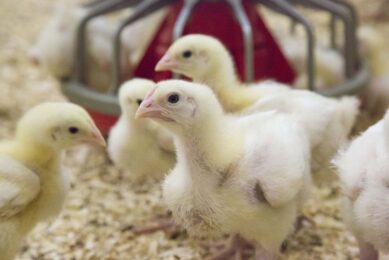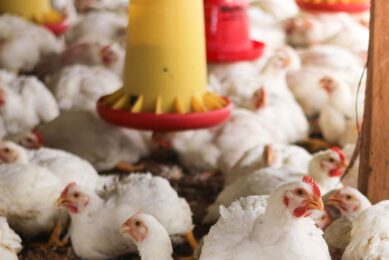Research: Omega-3 acids could reduce bone breakage in laying hens

Adding the right combination of fatty acids to the diets of laying hens can reduce bone breakage during lay, according to researchers at the University of Bristol’s School of Veterinary Sciences.
Reducing bone breakages in laying hens is an important issue as of the 29 million egg-laying birds in the UK a large proportion experience varying degrees of bone damage.
“Laying hens are particularly susceptible to high levels of damage to the keel (breast bone) which result from their relatively poor bone health. This is an increasing issue as the industry moves towards production systems that allow for more movement and access to outside. Whilst these systems have obvious welfare benefits they also increase the higher risk of accidents and breakages,” said Lindsay Wilkins at the University of Bristol.
John Tarlton who leads the present study added: “Our research has shown that omega-3 fatty acid added to the diet of free-range egg laying hens resulted in the birds’ bones being significantly stronger, with up to 40% fewer breaks”.
The researchers worked with Noble Foods as an industrial partner and their findings are already being implemented to produce improved feeds.
Dr. Michael Toscano, a research associate on the project, said the idea of adding to chickens’ diets could be beneficial to humans consuming the end product, as well. “In addition to benefits to the chicken, omega-3 fatty acids are also beneficial for human health,” said Toscano. “One objective of our research has been to produce an egg with fatty acid content that benefits consumers while achieving the same bone strengthening effect in the chicken. Our next challenge is to find the ideal balance of different fatty acids to maximize the hen’s welfare while producing more nutritious eggs, resulting in a positive outcome for chickens, producers and consumers.”
Source: Biotechnology and Biological Sciences Research Council
Join 31,000+ subscribers
Subscribe to our newsletter to stay updated about all the need-to-know content in the poultry sector, three times a week. Beheer
Beheer








 WP Admin
WP Admin  Bewerk bericht
Bewerk bericht